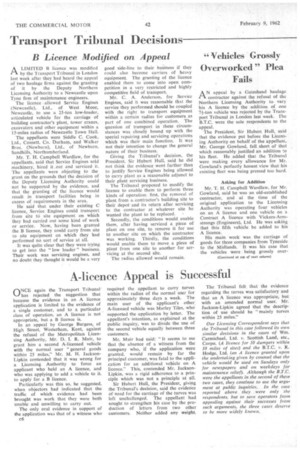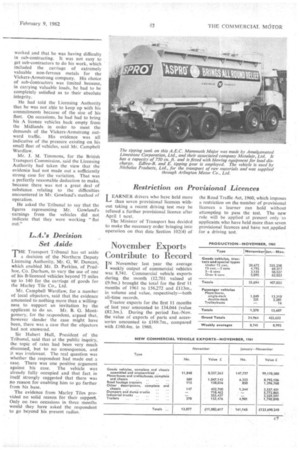Asking for Addition Mr. T. H. Campbell Wardlaw, for Mr.
Page 38

Page 39

If you've noticed an error in this article please click here to report it so we can fix it.
Gowland, said he was an old-established contractor, and at the time of the original application to the Licensing Authority was operating four vehicles on an A licence and one vehicle on a Contract A licence with Vickers-Armstrongs (Engineers), Ltd. He was asking that this fifth vehicle be added to his A licence.
His main work was the carriage of goods for three companies from Tyneside to the Midlands. It was his case that the vehicles were being grossly over worked and that he was having difficulty in sub-contracting. It was not easy to get sub-contractors to do his work, which included the carriage of extremely valuable non-ferrous metals for the Vickers-Armstrong company. His choice of sub-contractors was limited because, in carrying valuable loads, he had to be completely satisfied as to their absolute integrity.
He had told the Licensing Authority that he was not able to keep up with his commitments because of the size of his fleet. On occasions, he had had to bring his A licence vehicles back empty from the Midlands in order to meet the demands of the Vickers-Armstrong outward traffic. His evidence was all indicative of the pressure existing on his small fleet of vehicles, said Mr. Campbell Wardlaw.
Mr. J. M. Timmons, for the British Transport Commission, said the Licensing Authority had taken the view that the evidenee had not made out a sufficiently strong case for the variation. That was a perfectly reasonable deduction to make, because there was not a great deal of substance relating to the difficulties encountered in Mr. Gowland's method of operation.
He asked the Tribunal to say that the figures representing Mr. Gowland's earnings from the vehicles did not indicate that they were working "flat out."
















































































































